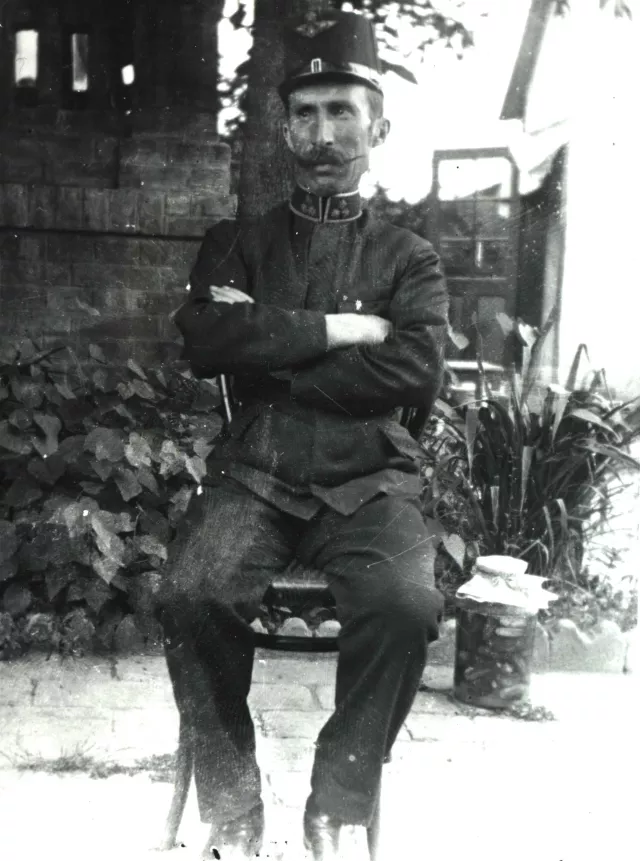This is my maternal grandfather, Adolf Berger. He is in his railway man uniform. But unfortunately I don’t know where and when the photo was taken.
Grandfather Adolf was born in Vrbas [Verbasz before 1920], here in Backa. They didn't magyarize their family name. He was a rather introverted person. At that time Adolf was considered a Scandinavian name. Hitler hadn't yet been heard of. My grandfather was religious; every Friday and Saturday he would go to the synagogue. He didn't wear a beard, a kippah or a hat, though. They regularly followed the news and listened to the radio. He read in Hungarian and German, too. They had a subscription to Politika [a daily newspaper, which still exists in Serbia and Montenegro]. My grandfather wasn't a member of any organization.
My grandfather had seven sisters, but not a single brother. These sisters, except for one, all lived in Subotica [the second city of Voivodina], but shortly before the war they gradually all moved to Novi Sad. They all perished. I don't know their names and dates of birth.
I don't know much about my grandmother's and grandfather's childhood. I know that, while my grandfather was at high school his mother died and his father remarried later. The stepmother wasn't very motherly. My grandfather finished high school in Baja [today in the south of Hungary] and enrolled in medical school in Vienna. In those days medical science in Vienna was among the best in the world. He had no money to pay for his studies, so he dropped out a year later.
My grandfather had a hard life. Austria-Hungary was economically expanding and gaining strength: railroads were built extensively and there was a constant demand for railroad personnel. He completed a course and started working at the railroad [the Hungarian State Railways]. Soon he became station manager in Dalj [today Croatia, called Dalja before 1920], then in Borovo [now in Eastern Slavonia, Croatia] and after World War I he got transferred to the main office of the railroads in Subotica, from where he retired. After he retired, he came to Novi Sad and they bought a house. My grandfather didn't serve in the army because he worked at the railroads, and railroad workers were exempt from service.
My grandparents' apartment was situated in today's Avgusta Cesarca Street. They had two rooms facing the backyard. It looked like a family house located in the middle of the city. There was water and electricity, and they heated the house with coal and wood. There was a garden, too, with flowers and vegetables, but they kept no animals. They were mainly in contact with their neighbors and with Jews. To my knowledge, they had no other friends. They used to go on vacation because my grandfather worked at the railroad and had the opportunity to travel for free. I don't know whether they took my mother along with them.











